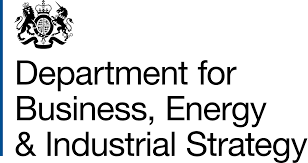The press release issued by the Department for Business, Energy and Industrial Strategy on 30 November 2022.
Twenty four innovative projects awarded up to £12 million to remove regulatory barriers and support businesses brings products and services to market.
- 24 winning bidders for the £12 million Regulators’ Pioneer Fund announced today to help remove regulatory red tape across key UK sectors and drive growth
- projects range from testing drone flights in Scotland that could deliver essential cargo to new tech that could reduce the backlog of court cases compounded by COVID-19
- Science Minister George Freeman said: “We are putting innovation at the heart of everything we do, including regulation which, if set up in the right way, can act a key driver to our international competitiveness.”
Science Minister George Freeman has today (30 November) awarded up to £12 million to UK regulators to help drive forward innovation, remove red tape and establish the UK as world leader in technologies of the future – from AI to help treat rare diseases, to drones monitoring safety on construction sites.
The Regulators’ Pioneer Fund is funding 24 regulator and local authority led projects across the UK that will help to remove regulatory barriers to innovation, supporting businesses across key UK sectors – from net-zero to healthcare – bring their products and services to market more quickly. If successful, these projects could lead to faster deployment of low carbon technologies like carbon capture and hydrogen, more tailored treatment for disease in the NHS and drones to deliver cargo and medicines safely.
Minister for Innovation George Freeman said:
The pace of new technology – from AI in healthcare to drone delivery to nutraceuticals – is creating a huge opportunity for the UK to be a global leader in testing new technologies and setting appropriate regulatory standards, which are key to investor & customer confidence.
That’s why our Innovation Strategy and Taskforce on Innovation Growth & Regulatory Reform (TIGRR) reforms are key to making the UK a global testbed and innovative regulator.
Today’s funding will support 24 pioneering testbeds to experiment and innovate, while helping our brightest businesses in bringing game-changing products and services to market.
Among those receiving funding today:
£750,387 to the Medicines and Healthcare products Regulatory Agency for a project seeking to create an entirely artificially generated control group – with similar health information to real patients – for use in clinical trials. If successful, this could change the way clinical trials are performed in common and rare diseases, lowering their cost and improving how new treatments are tested before they are applied in the NHS.
£961,650 to the Civil Aviation Authority to collaborate with the aviation industry and academia to enhance the understanding of hydrogen-related risks to aviation safety, identify gaps in policies, and propose recommendations to develop new net-zero policies. Hydrogen propulsion solutions offering the potential for no carbon emission flights are at an early stage of development. This project will help to make the UK a world leader in the use of hydrogen in aviation, influence the development of future global standards, and make the UK a prime destination for investment in this area, driving economic growth.
£66,259 to support Wakefield Council develop a ‘first of its kind’ interactive tool to help SMEs distinguish between controlled and uncontrolled cross-contamination of food allergens and improve awareness of effective allergen risk analysis. This will help businesses avoid general or blanket statements such as ‘may contain’ and enable them to provide clearer and more meaningful information to consumers with food allergies.
£250,000 for Argyll and Bute Council to partner with Skyports and Air Navigation Solutions Limited to undertake trials over the west-coast of Scotland testing the safe integration of drones within manned and unmanned airspace. This could enable the timely and safe delivery of medicines and cargo in remote locations.
Over £555,000 for the Health & Safety Executive to lead a project to develop and test innovative approaches to specific health and safety challenges in the construction sector. This could include wearable technologies monitoring the health of workers or drones that are used for inspection on construction sites.
Today’s funding is a key example of how the UK is using its newfound Brexit freedoms to create a new regulatory framework that prioritises innovation, growth and inward investment.
This follows the Chancellor’s announcement at the Autumn Statement where he revealed the government is tasking the government Chief Scientific Adviser Sir Patrick Vallance to lead work to consider how the UK can better regulate emerging technologies, enabling their rapid and safe introduction.
To ensure the UK continues to seize these opportunities, the independent Regulatory Horizons Council has today published 2 important reports on the regulation of Artificial Intelligence as a Medical Device (AIaMD) and neurotechnology. The reports provide government with advice on areas where regulatory reform can enable technological innovation in these crucial fields to facilitate their rapid and safe introduction.
Building on this, today the government has also commissioned the Regulatory Horizons Council to undertake a review on the regulation of quantum technologies – an emerging sector with anticipated impacts across many areas including space, finance, pharmaceuticals, and materials. Creating a regulatory environment that promotes innovation and growth of the UK quantum industry will enable the UK to lead the debate in international fora and ensure that quantum technologies are used for the benefit of UK society, with global productivity gains from quantum anticipated to be worth $100 billion within the next few decades.
